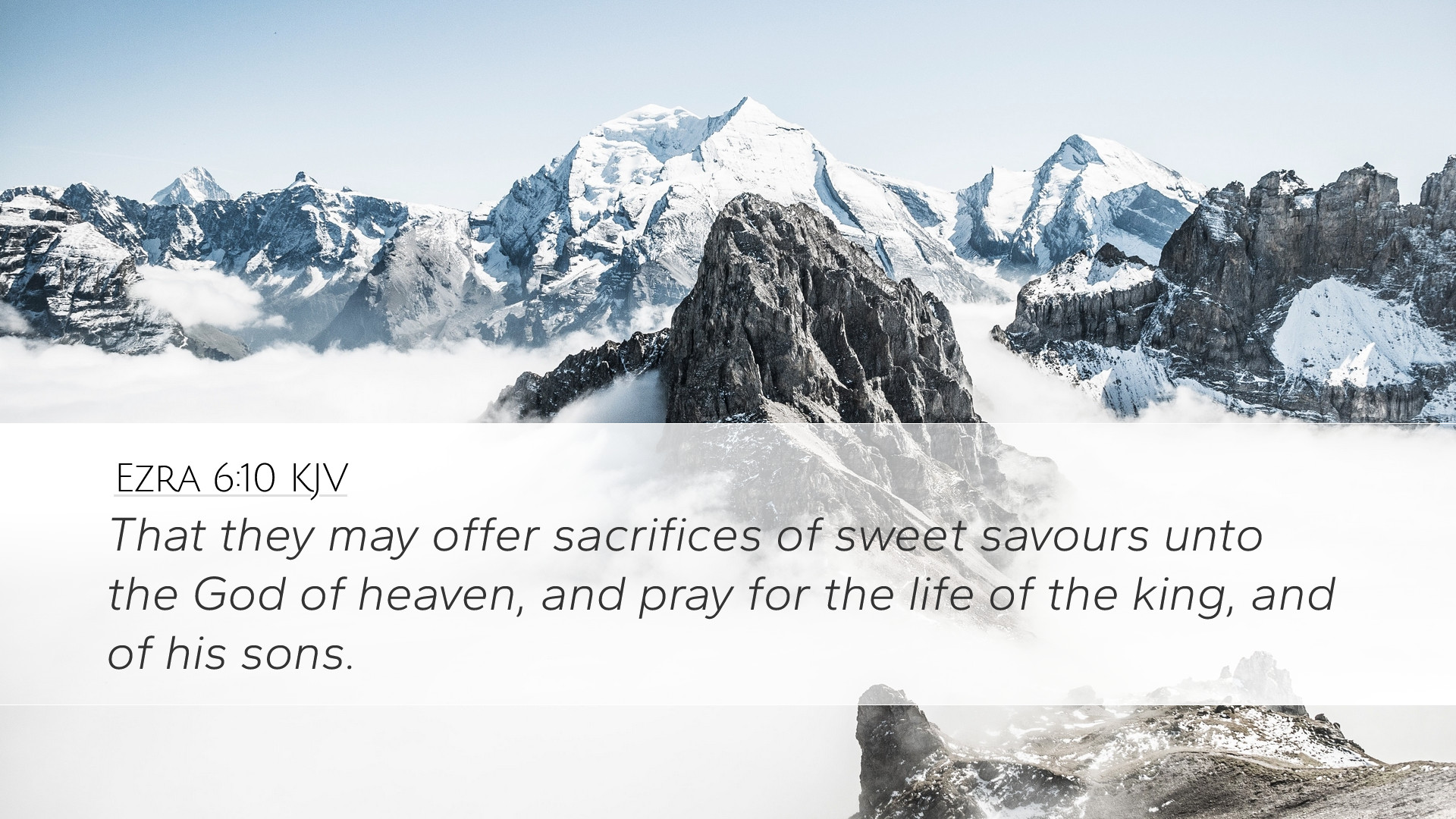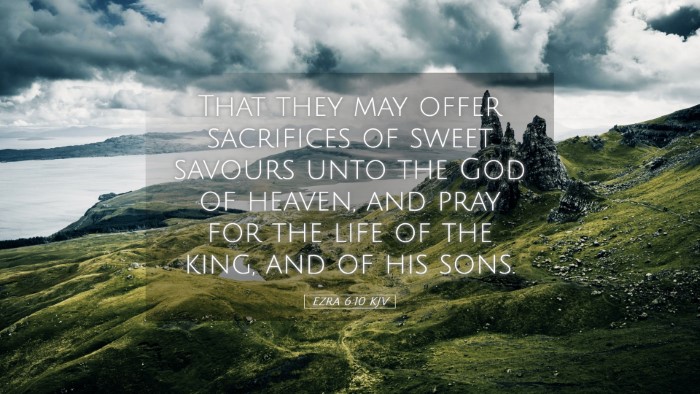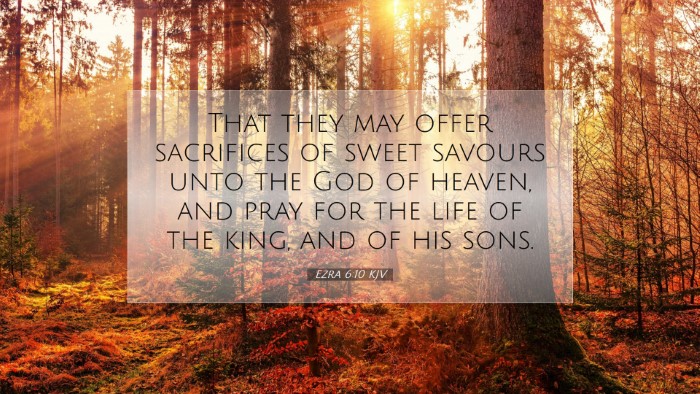Old Testament
Genesis Exodus Leviticus Numbers Deuteronomy Joshua Judges Ruth 1 Samuel 2 Samuel 1 Kings 2 Kings 1 Chronicles 2 Chronicles Ezra Nehemiah Esther Job Psalms Proverbs Ecclesiastes Song of Solomon Isaiah Jeremiah Lamentations Ezekiel Daniel Hosea Joel Amos Obadiah Jonah Micah Nahum Habakkuk Zephaniah Haggai Zechariah MalachiEzra 6:10
Ezra 6:10 KJV
That they may offer sacrifices of sweet savours unto the God of heaven, and pray for the life of the king, and of his sons.
Ezra 6:10 Bible Commentary
Commentary on Ezra 6:10
Verse: Ezra 6:10
"That they may offer sacrifices of sweet savour unto the God of heaven, and pray for the life of the king, and of his sons."
Introduction
The context of Ezra 6:10 is significant as it relates to the reestablishment of the worship of God in Jerusalem following the Babylonian exile. This verse highlights the dual purpose of the Jewish people’s restoration: to offer sacrifices to God and to pray for their earthly rulers. It reflects the theocratic nature of the Israelite community, where civil governance and spiritual duty were intertwined. Let us delve deeper into the insights provided by seasoned commentators like Matthew Henry, Albert Barnes, and Adam Clarke.
Historical Context
In this chapter, we find the people of Israel completing the rebuilding of the temple under the auspices of King Darius, signifying divine favor and support. The restoration of the temple is not only a physical act of rebuilding but also symbolizes a return to God’s ordinances and worship practices.
Significance of Offering Sacrifices
Matthew Henry notes that the sacrifices mentioned in this verse symbolize the acknowledgement of God’s sovereign mercy and grace. The term "sweet savour" denotes the acceptance and pleasure of God in these offerings, which were essential for maintaining a right relationship with Him.
Albert Barnes adds that these sacrifices were integral to the worship practices established by Moses. They served as a means to atone for sins and express gratitude, illustrating God’s desire for His people to come before Him with hearts of repentance and thanksgiving.
Prayer for Authority
This verse also underscores the importance of praying for those in authority. Adam Clarke emphasizes that such prayers are a demonstration of loyalty and recognition of the divine mandate over rulers. The chapter illustrates a model for the community to intermingle worship with civic responsibility, encouraging believers to engage in spiritual intercession for the welfare of their leaders.
Matthew Henry adds, “Prayers for kings and rulers provide a spiritual safeguard against corruption and meaningful governance.” This aspect signifies the shared responsibility of the populace to seek God’s guidance for their leaders’ hearts and actions.
Theological Reflections
From a theological perspective, Ezra 6:10 illustrates the essential relationship between worship and socio-political dynamics. Albert Barnes posits that prayer and sacrifice are both addressed to God, reflecting a life lived in submission to His will, regardless of the circumstances faced by the community. This text serves as an apologia for the integration of faith into public life.
Furthermore, Adam Clarke draws attention to the communal aspect of these actions. It is not merely an individual undertaking but a collective responsibility which engenders unity among the people as they turn their hearts and minds toward God.
Application for Modern Readers
For pastors and theologians today, Ezra 6:10 serves as a profound reminder of the necessity of coupling prayer with action. In modern times, believers are encouraged to pray not only for spiritual matters but also for civic leaders, engaging with the premise that divine intervention can shape societal conditions positively.
Matthew Henry concludes that this verse encourages reflection on our communal obligations towards authorities, urging Christians to confront their duties with fervor and integrity. Albert Barnes adds that the church should be a light to the nations, modeling what it means to bless and pray for leaders in a way that reflects God’s character.
Conclusion
In summary, Ezra 6:10 encapsulates the interplay between divine worship and earthly governance. The commitment to offering sacrifices and praying for the life of the king and his sons calls the faithful to a greater understanding of their role both in society and in their relationship with God. The insights from Matthew Henry, Albert Barnes, and Adam Clarke reveal a holistic view of faith that transcends mere ritual, demanding active participation in prayer and civic engagement.


